What do immigrants do for the UK economy? Nine charts Conservative ministers seem to be ignoring
Just how many migrant workers are there in the UK? What do they contribute economically? And what is the impact on the rest of the workforce and the wider economy?

The Conservative party conference in Birmingham this week has echoed to negative rhetoric on the economic impact of immigrants.
The Home Secretary Amber Rudd this week suggested that foreigners are “taking jobs British people could do.”
Her colleague, the International Trade Secretary, Liam Fox, said some immigrants “come to the country and consume the wealth of the country without ever having created anything.”
And Theresa May herself said in her closing speech that some Britons have been pushed out of work due to low-skilled immigration.
But just how many migrant workers are there in the UK? What do they contribute economically?
And what is their real impact on the rest of the workforce and the wider economy?
Here are nine charts to help provide an answer - and perhaps help to educate Conservative ministers.
The numbers
Foreign-born workers are unquestionably a significant part of the UK’s 31.6 million strong workforce.
There are 5.4 million non-UK born workers in the UK according to the latest official statistics.
That represents 17 per cent of the total.
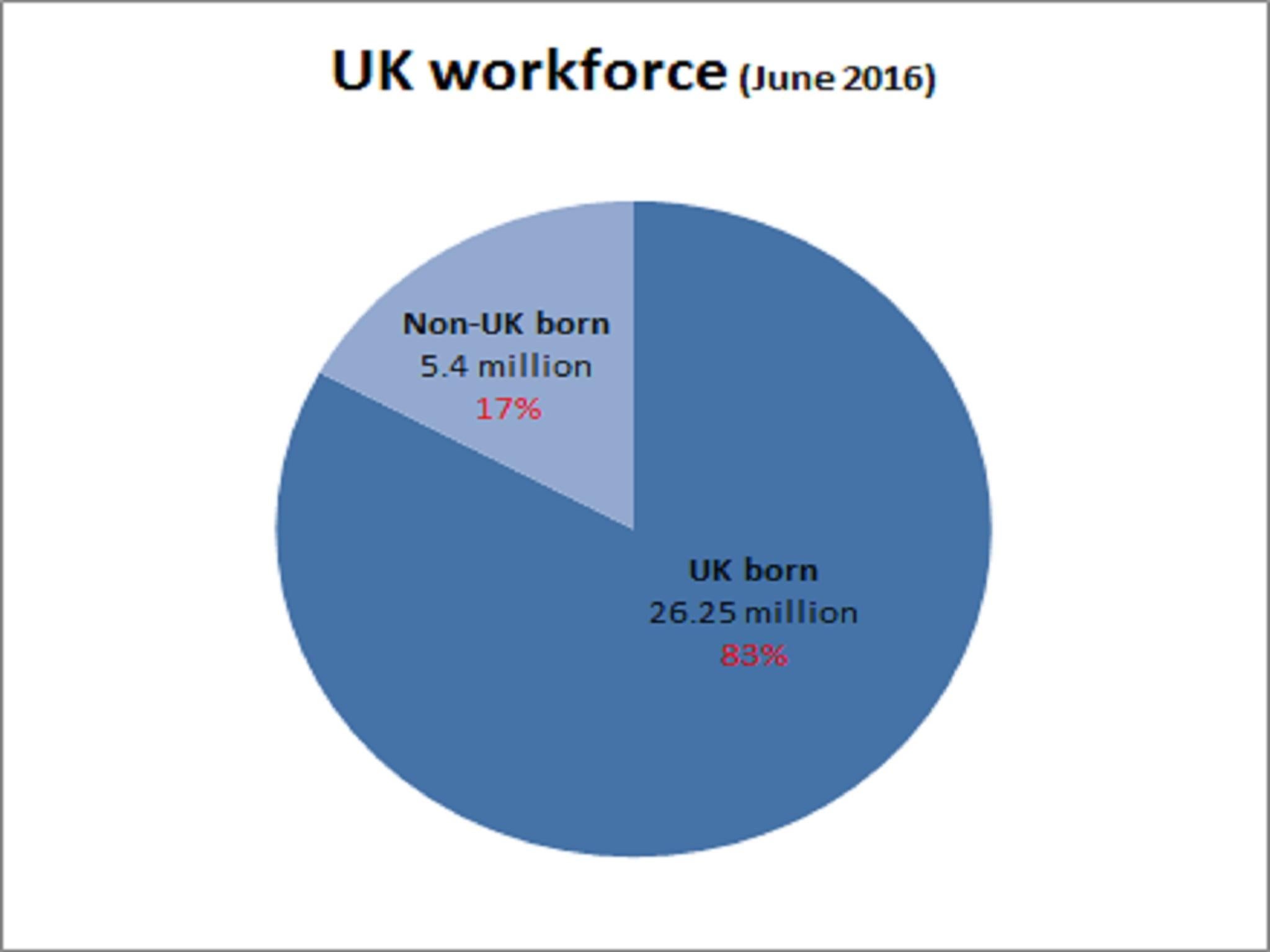
That share of immigrant workers has been rising sharply in recent years, more than doubling since 2000 when the proportion was 8 per cent.
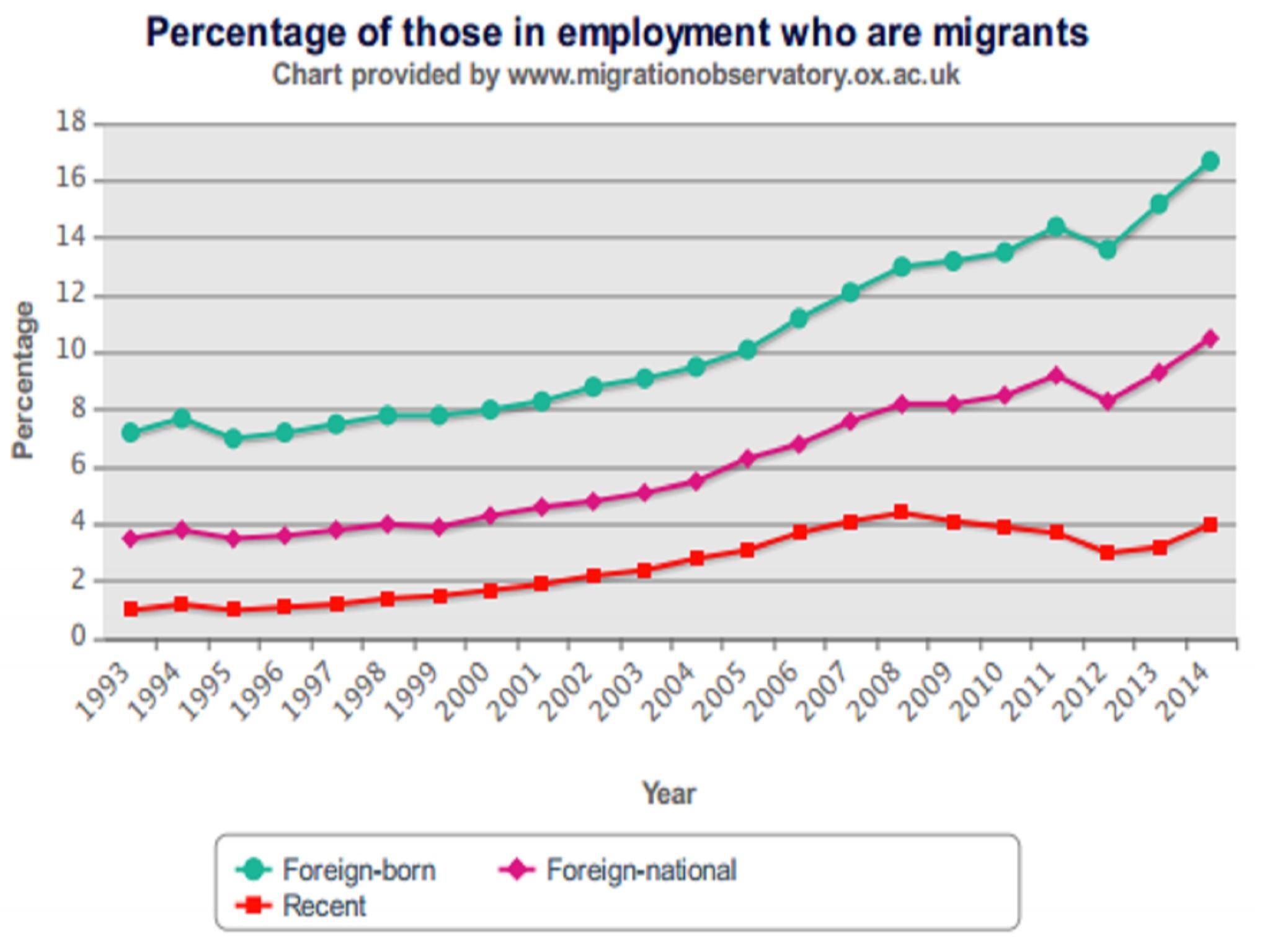
EU migrants are more likely to be in work than natives, with the participation rate for the group at just below 80 per cent, refuting the idea that most immigrants do not "contribute".
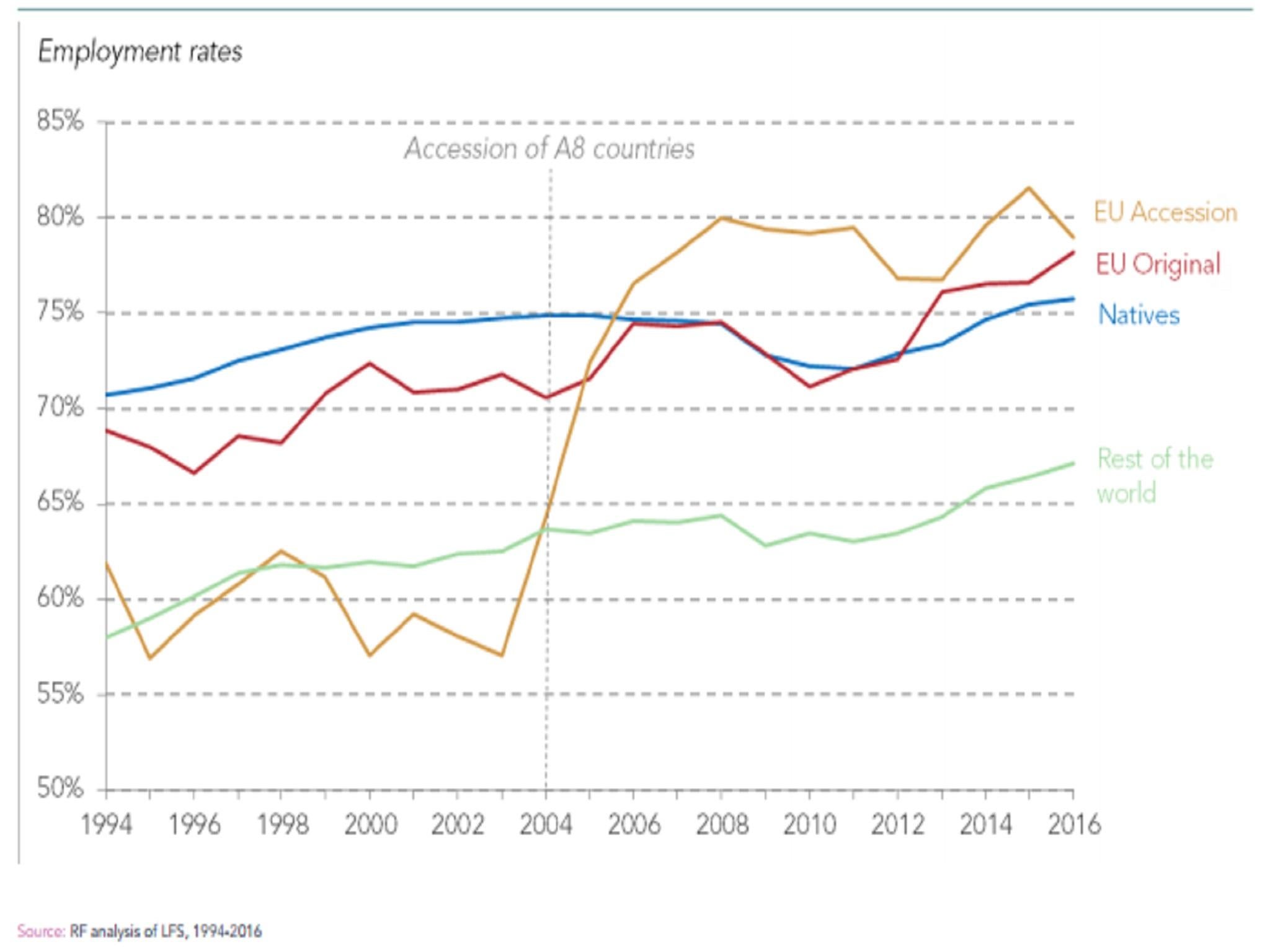
The lower employment rate for immigrants from the rest of the world (67 per cent) is due to the lower rate of employment of women in this group. The male employment rate for this group is similar to those of others.
The high and rising labour force participation rate for the UK native population also undermines the idea that immigrants are "taking" jobs from Britons.
The industries
Aggregate figures conceal the fact that immigrant workers are much more important for certain sectors of the economy, such as food processing, clothes manufacturing, cleaning and IT.
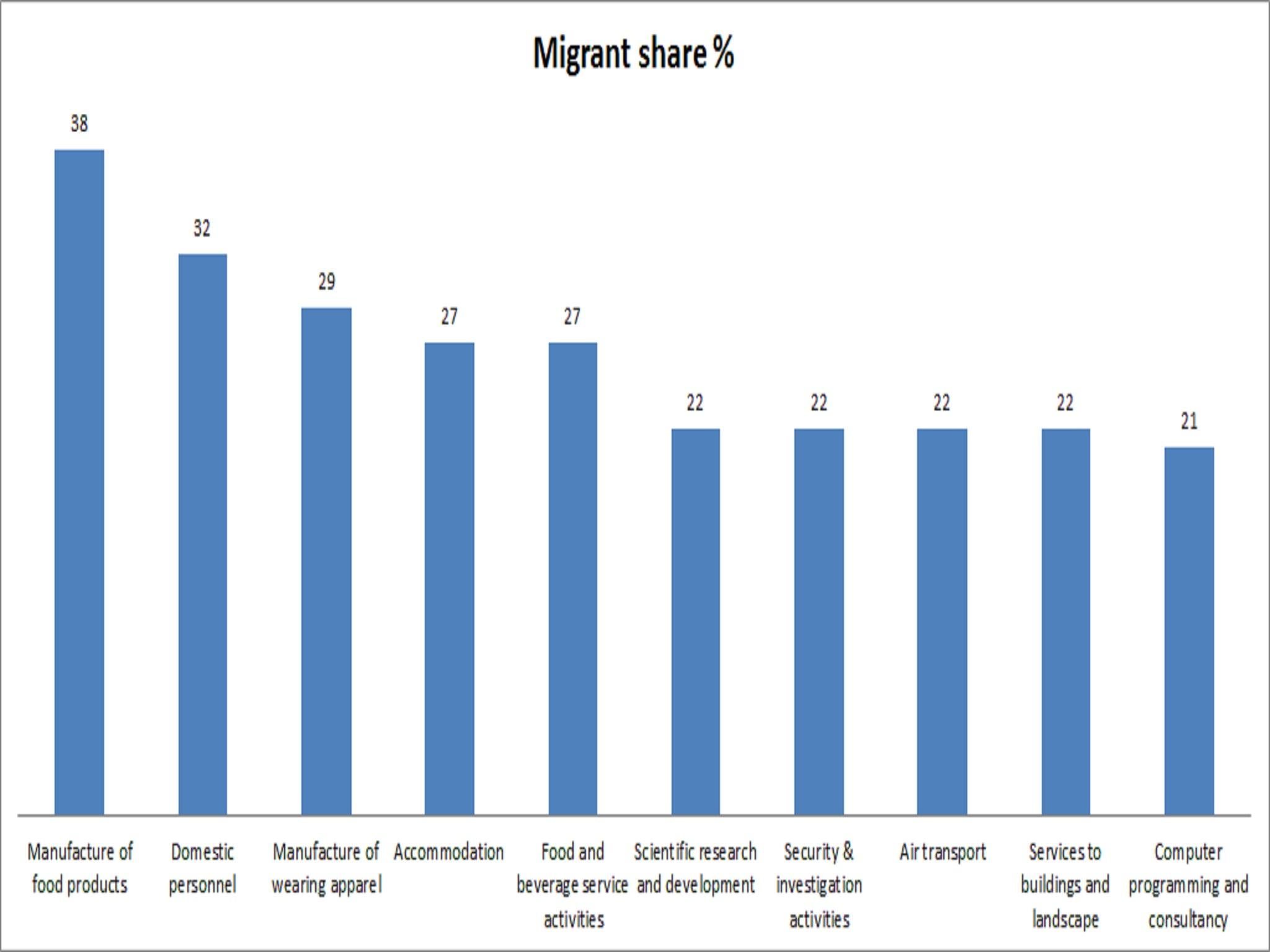
A reduction in immigration could have damaging economic side-effects.
Around 10 per cent of the UK's 2.1 million construction workers are estimated to hail from abroad.
And construction organisations have warned that they will struggle to complete projects without being able to draw on skilled migrant labour from Europe.
The health service
Data for the English National Health Service shows that in 2015 of the 1.22 million total staff around 235,000 were non-British, around 19 per cent.
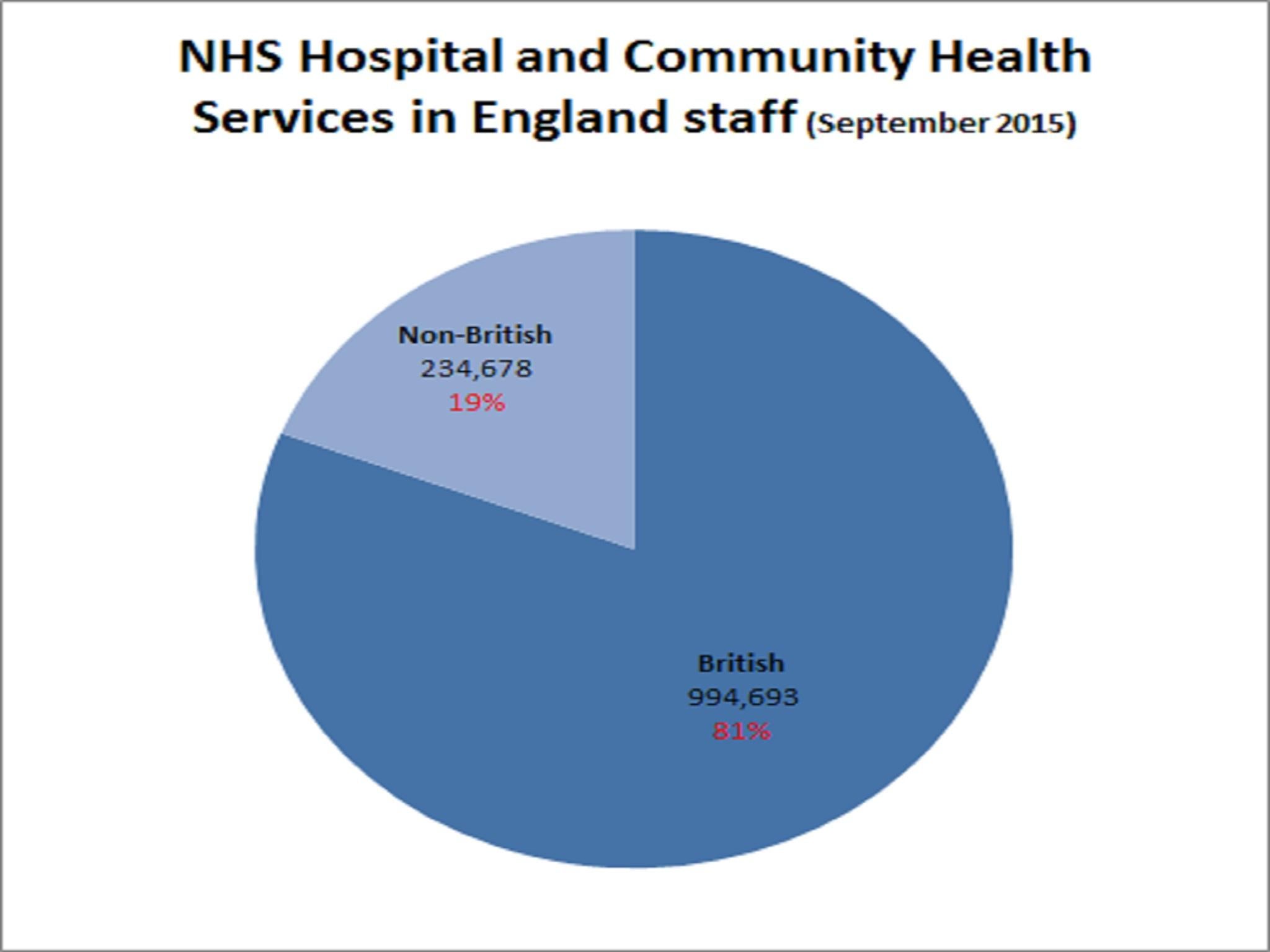
For nurses the share of non-British staff was 21 per cent. For doctors the non-British share was 30 per cent.
The IPPR think tank has warned that the NHS would "collapse" without its European Union workers.
The students
Each year around 500,000 people from 200 countries study come to the UK to study in the UK.
On top of this 600,000 come to do an English language course.
The ExEdUK pressure group estimates that total UK education exports total more than £20bn, making it the UK's fifth largest services export sector.
It also estimates that overseas students directly contribute around £11.8bn to the UK economy.

Universities, which receive around £5bn in tuition fee income a year from foreign students, have also warned that their finances would come under severe strain if there was a clampdown on inflows.
The wages
Jonathan Wadsworth, professor of economics at Royal Holloway, University of London, has found no correlation between local average wage growth and the local share of migrants in a local workforce.

Some other studies have shown a downward impact from immigration on the wages of the low-skilled.
But the impact is modest - and much smaller than the influence of other government policies and wider economic conditions.
Research by the Resoultion Foundation in the summer suggested that the downward impact of increased immigration on wages over the past seven year in some sectors has been dwarfed by the overall general pay squeeze since the financial crisis.

The public finances
The Office for Budget Responsibility's long-term projections from last year suggest that low annual net migration to the UK economy (105,000 a year) would result in GDP growing less fast, tax revenues being weaker and the public debt as a share of GDP being higher than otherwise.
Under a low-net migration scenario the debt to GDP ratio rises above 100 per cent in fifty years' time.
The high net migration (224,000 per year) scenario results in stronger public finances, with the debt to GDP ratio at 70 per cent by 2065.
The central projection of 165,000 per year net migration sees debt climb to 85 per cent of GDP.
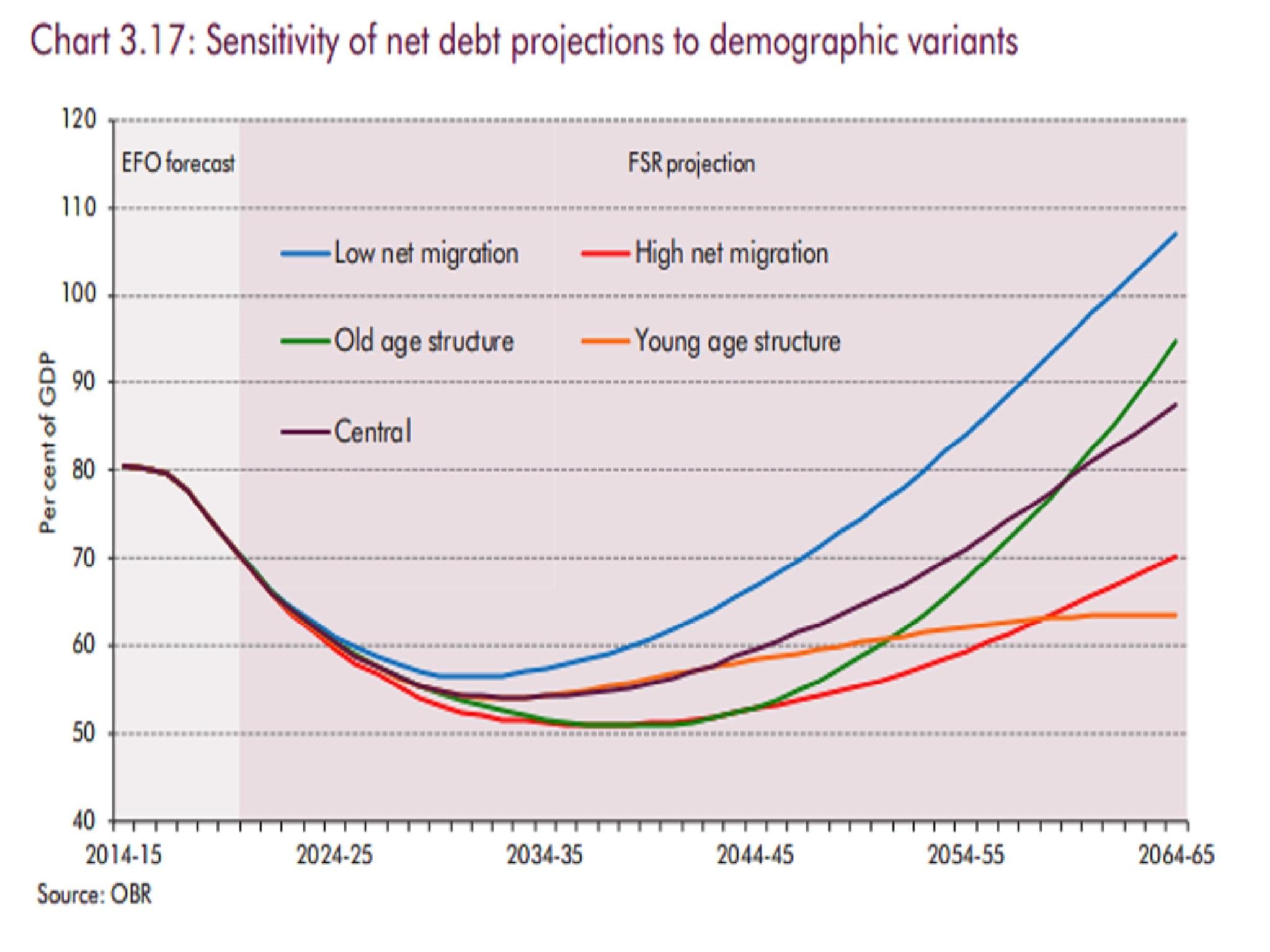
This modelling reflects the economic research which suggests immigrants to the UK, particularly from Europe, are more likely to be younger than the native population and more likely to work and pay taxes than to claim benefits.
The tax benefit of the presence of immigrants is seen as outweighing the financial cost they impose through greater pressure on local infrastructure and public services.
Other research by the National Institute of Economic and Social Research suggests immigrants boost our national productivity by filling gaps in the labour market that would otherwise not be filled, which ultimately means faster GDP growth and higher incomes per head for us all.
Join our commenting forum
Join thought-provoking conversations, follow other Independent readers and see their replies
Comments